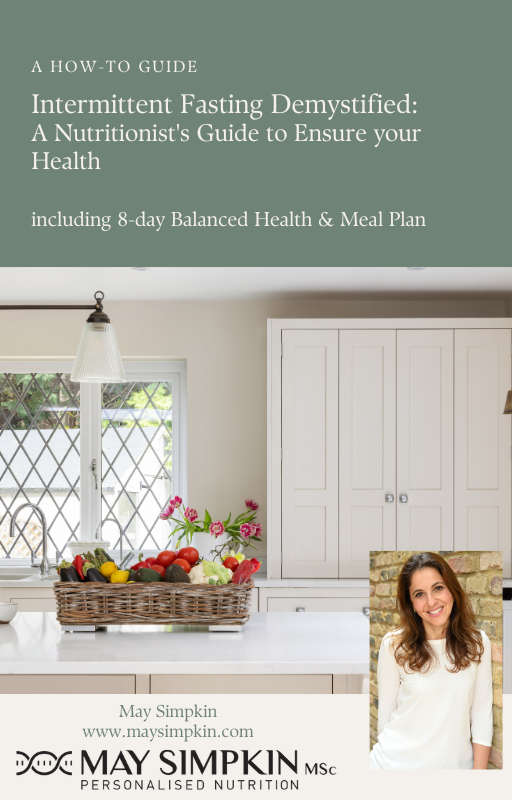
It’s often tempting to invest in an array of supplements to help your body thrive, but do you really need to take supplements and if so, which ones? Is it really worth it?
Whether it’s vitamin D, vitamin C, more magnesium, zinc or omega-3s, we are often led to believe that more is better.
There are cases where supplementing with key vitamins and minerals can be beneficial. This could be due to a poor overall diet, a restricted diet, use of medications, compromised digestive health for any reason, age or pregnancy where there is an increased need for specific nutrients.
Furthermore, it is a sad fact that the fruits and vegetables available in the supermarket today are not as nutritious as the quality of produce available in previous generations.
It is easy to see why a supplement can be a practical and convenient option, taking a multivitamin as a preventative or “catch-all” solution.
However, formulations differ and the specific quality and quantity of nutrients available will vary from brand to brand. They can contain hidden ingredients that you are not aware of.

One of the most important considerations to bear in mind is that no array of supplements can replace the health benefits of a diet that is balanced and varied.
Real food is still the best source of bio-available nutrients and it is very difficult to over-consume from food alone.
Taking a multivitamin will not override a poor diet and indeed over-consumption may be harmful. Indeed, some can interact with certain medications. It may be that certain forms or even a combination of nutrients may be better for some conditions over others.
In the UK, supplements do not need to be licensed or registered and they are available over the counter with no prescription. With this in mind, it is very important to consider carefully why you might need to complement your diet and which supplement you should be taking, if any.
In a recent report in the British Medical Journal on the regular use of omega-3 fish oil supplements and cardiovascular disease (CVD), the case for supplementing was challenged in those without clinical needs.
Someone who rarely or never eats fish and has multiple risk factors for CVD, but doesn’t meet the criteria for prescription omega-3 medication, may want to discuss the use of over-the-counter fish oil supplements with a doctor. However, fish oil and other dietary omega-3 supplements will never be a substitute for a healthy diet and healthy lifestyle. The recommendation is for one to two servings of fish per week. If you do take a fish oil, it’s important to use reputable sources of the supplement and check the bottle for a quality control seal. It’s also important to avoid megadoses of fish oil because high doses have been linked to an increased risk of heart complications.
Whilst it is rare to reach toxic levels, many processed foods have been enhanced or fortified with specific nutrients and as consumption of processed foods has increased over the years, people may not be aware of their intake over a day.
Here’s some nutrients where an excess intake may be harmful
- Calcium; excess consumption (over 1,00mg/day) has been associated with an increased risk of cancer
- Vitamin D; regularly supplementing more than 4,000 international units (ius) daily, despite this being the safe upper limit, may increase blood calcium levels which can lead to organ damage.
- Folic Acid; whilst recommended pre-pregnancy, over 1,000mcg is not recommended and this can be easy to reach with regular consumption of fortified foods like flour, pasta, rice, breads and cereals. It may mask the signs of vitamin B12 deficiency and can affect mental function
- Vitamin A; too much can cause headaches, blurred vision, nausea and muscle aches. This is not the same for consuming Beta-carotene, the precursor to vitamin A.
- Vitamin B6; Excessive intake over the long term can increase sensitivity to the sun and cause nausea and heartburn.
- Iron; high-dose supplementation can increase the risk of constipation, diarrhoea, nausea, and vomiting.
- Zinc; over 100mg can have adverse effects and long-term zinc supplementation can result in a copper deficiency
- Vitamin C; too much can cause diarrhoea, nausea and stomach cramps
Who should need to take supplements?
I repeat, a nutritious balanced diet is fundamental to overall health and the way to reap the health benefits from the nutrients. However, in some cases, supplementation can address a deficiency where the diet is lacking:
- Those on a restrictive diet, for example, vegans or vegetarians must ensure adequate levels of nutrients like vitamin B12 that are only available from animal-derived foods.
- Older age groups with compromised digestive health or restrictive mobility outdoors
- Those who wish to support collagen production for healthier joints, skin and nails. Collagen production reduces as we age and supplementing can help to ensure stronger joints and better skin integrity and elasticity.
COLLAGEN RECOMMENDATION
Totally Derma Collagen Drink; Use “MAY15” for 15% discount on 90 day supply via THIS LINK









0 Comments